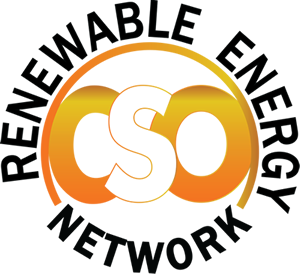The RECSO Network was formally founded in September 2018 as a loose-semi-formal Network that brings together civil society organizations, academic institutions, individuals and Networks engaged in the promotion and development of activities and practices in the Renewable energy sub sector at all levels (i.e. national, local, sub-regional and community). Further information on this is available at: Link
The network’s vision is, ‘Well developed and managed Renewable energy resources for the benefit of all Ugandans.’ On the other hand, the mission is, ‘To promote increased access to and sustainable utilization of renewable energy alternatives for efficient, clean cooking and lighting in Uganda through collaboration, education, training, and advocacy.’
The RECSO Network Secretariat is currently hosted at Environmental Alert. It’s through this that the network’s members coordination is advanced for structured engagements with Government ((e.g. Ministry of Energy and Mineral Development; Ministry of Water and Environment), Authorities (e.g. National Forestry Authority; national Environment Management Authority) targeted at influencing decision, policy formulation and implementation towards universal access to clean renewable energy alternatives.
Currently, the Network has 37 profiled CSOs and Networks at national level and representatives of the 3 sub-regional hubs engaging at the sub-regional level across 20 districts in the Albertine Rift. The coordination and engagement at the sub-region and district level is through regional hubs hosted by members of the network detailed as follows:
- The Southern Albertine Sustainable Energy Network (SASEN); Kasese, Bushenyi, Rubirizi, Mitooma, Rukingiri, Kabarole, Kisoro and Bundibugyo -Coordinated by Kiima Foods.
- Mid Albertine Sustainable Energy Network (MASEN); Masindi, Hoima, Buliisa, Kagadi, Kyenjojo and Ntoroko coordinated by Kibaale District Civil Society Organizations Network (KCSON).
- The Northern Albertine Sustainable Energy Network (NASEN); Arua, Nebbi, Koboko, Moyo, Adjumani and Maracha- Coordinated by Rural Initiative for Community Empowerment (RICE-WN)
Objectives of the network
- To strengthen the institutional capacity of the network by 2029
- To promote information sharing, learning and knowledge management
- To advocate and lobby for sustainable renewable energy technologies by 2029
- To promote networking, collaboration and partnership within the members and with other renewable energy related stakeholders.
Article 9 of the MoPs provides the governance and structures of the Network i.e. the General Assembly which is the supreme decision-making organ of the Network, Steering Committee which provides leadership to the Network and the Secretariat which the host institution and play a coordination, administrative and secretarial role as well as being a fiscal agent for the Network. On top of this, MoPs also provide another organ called the Thematic working groups which are constituted by the steering committee to effectively discharge its purposes. For now, the Network has three thematic working groups including:
- Research, lobbying and advocacy which is aimed at supporting Network in coordinating research and evidence used on advocacy engagements;
- Resource mobilisation and capacity development; which is aimed at supporting Network in mobilisation of resources to sustain the operations of the Network;
- Gender, innovation and technology transfer. which is
The Composition of the thematic working includes at least 10 selected members whose roles are to steer and co-ordinate engagements of the Thematic Working Groups.
Scope: The Thematic Working Group will bring input from the members into the process of the Joint Sector Review of the Ministry of Energy and mineral development. The Thematic Working Group does not have the authority to speak on behalf of the Network unless on a specific topic following a consultative process, with sufficient time and resources, in which the scope and limitations of the representation have been agreed upon.
Duration: The operation of the Thematic Working Group is unlimited. After every 2 years, membership to the committee will be reviewed by the members. The Thematic Working Group members will also elect new thematic Head and Co-Head.
On 30th October 2019, the Network conducted its annual general meeting- AGM where by one of the objectives to elect the new steering committee. From the meeting, the steering committee was voted including the thematic heads. The new leaders of themes are ARUWE for Gender, innovation and technology transfer, Tree Talk Plus for Research, lobbying, and advocacy and VI Agroforestry project for Resource mobilization & capacity development. However, the co-heads and members of the thematic groups were not constituted and this remained the responsibility of the secretariat.
It is against this background that the secretariat is organinsing a workshop to fully constitute the thematic working groups to fill the missing part of the steering committee but also help the thematic working groups effectively carry out their purposes aimed at supporting Network in managing issues to do with gender, new ideas and technology.
